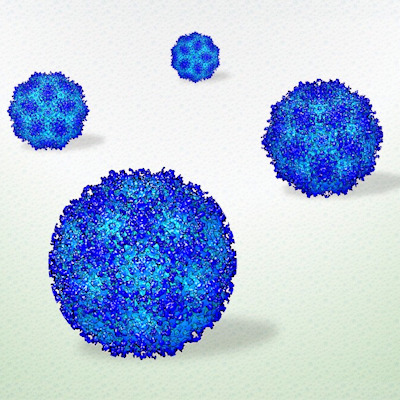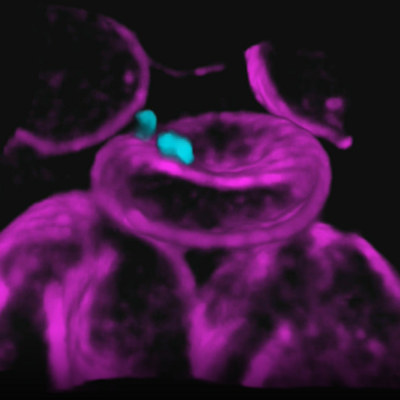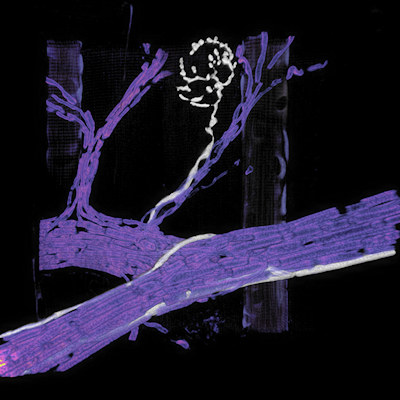September 12, 2022 -- Swiss scientists have automated microscope control for imaging biological events such as cell division all while limiting stress on the sample. The team from École Polytechnique Fédérale de Lausanne trained artificial neural networks to detect subtle cell events and use that information to drive changes in microscope acquisition speed.
In their study, published in Nature Methods on September 8, the research team trained a neural network to spot mitochondrial constrictions combined with observations of a protein known to be enriched at sites of division. When both levels are high, the microscope switches to high-speed imaging to capture many images of division events in detail. However, when both levels are low, the microscope switches to low-speed imaging to avoid exposing the sample to excessive light.
The scientists were able to observe the sample for longer than possible with standard fast imaging microscopy. The sample was more stressed than with standard slow imaging, but the researchers were able to capture more meaningful data: they obtained more cell events, measured smaller constrictions, and could follow each division in greater detail.
The team is making the control framework available as an open-source plug-in for the open microscope software Micro-Manager, with the aim of allowing other scientists to integrate artificial intelligence into their own microscopes.
Copyright © 2022 scienceboard.net










